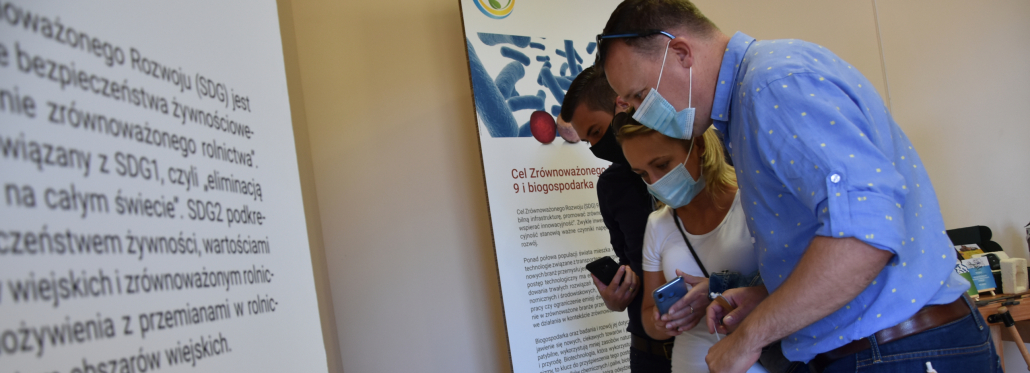Throwback to the 2nd BE-Rural Bio-based Pop-up Store
During 10 days, locals from the Szczecin Lagoon region, Poland, had the chance to immerse themselves in the BE-Rural Bio-based Pop-up Store, a fascinating environment showcasing around 50 innovative and sustainable bio-based exhibits. With a focus put on a few products from Poland, such as biodegradable and edible tablewares made from wheat bran and jewellery composed of food by-products like salmon skin, the Bio-based Pop-up Store took place between 01 and 10 August in Swinoujscie, a port city located right between the Baltic Sea and the Szczecin Lagoon.
Coordinated by project partners, BIOCOM AG and NMFRI, the Polish National Marine Fisheries Research Institute, with the support of the Ecologic Institut, the temporary exhibition attracted more than 300 visitors who were curious to find out about the concrete solutions the bioeconomy can offer to deal with important environmental challenges.
On the opening day, Saturday 01.08, a World Café took regional stakeholders on a boat for two hours of knowledge-sharing about the BE-Rural project, and discussion around how circular bioeconomies could be implemented in the regions of Vistula and Szczecin Lagoons. Vistula Lagoon is the second Polish region involved in BE-Rural, and a number of stakeholders from the Vistula lagoon participated in the World Café. The specific issues which the two lagoon regions have in common with regards to economically low-value fish species were addressed with a view to creating a strategy on the use of bio-based resources that would help enhance culinary tourism in both regions. Participants included local authorities, fishery local action group representatives, scientists, and local business leaders.
On the following day, a seminar was organised to seek the views from the regional stakeholders about the conditions and long-term actions necessary for the introduction of circular bioeconomies around low-value fish species in the two lagoon regions. More details were provided about the specific low-value fish species present in the Vistula and Szczecin lagoons, the fishing methods and its traditional use. Specific case studies on how circular bioeconomies work in other parts of Poland were also brought up, such as in the carp aquaculture field in the Barycz Valley or in the hotel industry with the CIRTOINNO project, a publicly financed project aimed at providing circular economy tools to support innovation in green and blue tourism small and medium-sized enterprises.
All in all, not only did the 2nd BE-Rural Bio-based Pop-up Store increase the Szczecin local community’s knowledge about the bioeconomy and the United Nations Sustainable Development Goals, but it also stimulated the interest of visitors and local actors in the availability and use of the regional bio-based resources, while encouraging their involvement in the creation of a regional development strategy based on the principles of a circular bioeconomy.

